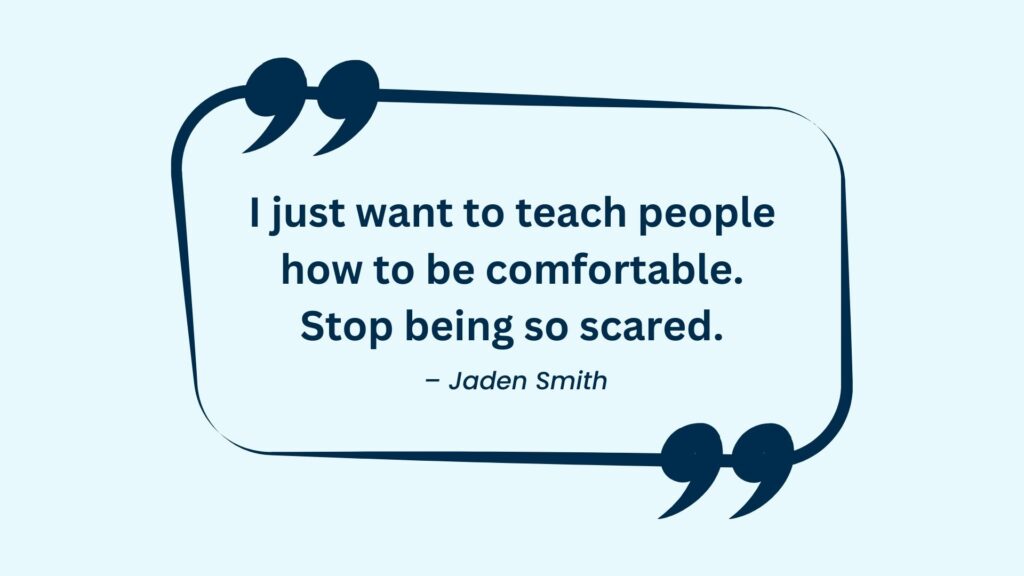Table of Contents
Welcome to the exciting world of computer science education! In today’s digital age, where technology is continuously evolving and shaping every aspect of our lives, a strong foundation in computer science has become more crucial than ever before. From developing cutting-edge software applications to solving complex algorithms, computer scientists are at the forefront of innovation and progress.
But with so many universities offering programs in computer science around the globe, how do you determine which ones are truly exceptional? That’s where this blog post comes in. We have scoured through countless rankings and evaluations to bring you the top 10 global universities for computer science. Whether you’re a prospective student looking for the best educational experience or an employer seeking out top talent, this list will serve as your ultimate guide.
So buckle up and get ready to explore renowned institutions that have established themselves as leaders in the field of computer science. From innovative research facilities to distinguished faculty members, these universities offer unparalleled opportunities for students who aspire to make their mark on the digital world. Let’s dive right into it!
Methodology for ranking universities
When it comes to determining the top global universities in the field of computer science, a rigorous methodology is essential. After all, there are countless institutions around the world offering computer science programs, each with their own unique strengths and areas of expertise.
To compile our list of the top 10 global universities for computer science, we considered several key factors. First and foremost, we analyzed academic reputation by looking at rankings from reputable sources such as QS World University Rankings and Times Higher Education. This allowed us to gauge how these institutions are perceived within the academic community.
We also took into account research output and impact. Universities that produce groundbreaking research in various subfields of computer science were given higher consideration. Additionally, industry collaboration was an important factor – we looked at partnerships between universities and leading tech companies to evaluate practical experience opportunities for students.
Furthermore, faculty qualifications played a significant role in our ranking process. We examined professors’ credentials such as educational background, publications, awards received, and their involvement in cutting-edge research projects.
Lastly but certainly not least important was student satisfaction and employability after graduation. We considered factors like job placement rates, internships offered by university partners or through dedicated career centers on campus.
By carefully analyzing these criteria using a comprehensive approach to ranking universities worldwide in computer science education excellence!
Also Read: 7 Tips to Score a 7 in Computer Science
Why you should take CS?
If we haven’t convinced you enough so far, here’s why you should computer science:
It is always growing. A computer science degree will not only allow you to see how far things have come, but also how far we will go. With various ongoing technological developments, you can never expect to be working a monotonous job.
CS will challenge you and help you stay up to date with all kinds of digital advances (Bonus: your grandkids won’t have to teach you how to connect to the Wi-Fi)
Computer science doesn’t just involve looking at a screen full of code and rapidly bashing your keyboard. It has multitudes of dimensions to it. Here are a few:
- Software developer
- Computer systems analyst
- IT manager
- Computer network architect
- Mobile application designer or developer
- Research and development (R&D) scientist
- Artificial intelligence and machine learning engineer
It is a HIGH paying job. CS is highly respected and demanded. You could be making a hundred thousand dollars right after graduation.
There are two very important aspects when it comes to securing a high paying, challenging and rewarding job. The course that you select, and the college that allows you to foster your growth. Computer science is a great course. But with a top college, it’s even better.
Top 10 global universities for computer science:
| Ranking | College | IB score | GPA | SAT/ACT | TOEFL/IETLS | Acceptance rate |
| 1 | MIT | Minimum score of 39 | 3.8 | SAT- 1520
ACT- 34 |
TOEFL- 90
IELTS- 7 |
6.7% |
| 2 | Carnegie Mellon | Minimum of 30 | 3.7 | SAT- 1500
ACT- 32 |
TOEFL- 102
IELTS- 7.5 |
5% |
| 3 | Stanford | Minimum score of 39 | 3.8 | SAT- 1520
ACT- 33 |
TOEFL- 100
IELTS- 7 |
5.2% |
| 4 | University of California–Berkeley | Minimum score of 37 | 3.5 | SAT- 1450
ACT- 33 |
TOEFL- 90
IELTS- 7 |
8.5% |
| 5 | University of Illinois | Minimum score of 35 | 3.6 | SAT- 1385
ACT- 30 |
TOEFL- 96
IELTS- 6.5 |
15% |
| 6 | Cornell | Minimum score of 37 | 3.7 | SAT- 1480
ACT- 32 |
TOEFL- 100
IELTS- 7 |
10.7% |
| 7 | Georgia Institute of Technology | Minimum score of 37 | 3.6 | SAT- 1439
ACT- 32 |
TOEFL- 90
IELTS- 7 |
21.3% |
| 8 | University of Washington | Minimum score of 37 | 3.6 | SAT- 1325
ACT- 29 |
TOEFL- 76
IELTS- 6 |
28% |
| 9 | Princeton | Minimum score of 40 | 3.8 | SAT-1460
ACT- 32 |
TOEFL- 100
IELTS- 7 |
5.8% |
| 10 | University of Texas–Austin | Minimum score of 37 | 3.6 | SAT-1335
ACT-31 |
TOEFL- 79
IELTS- 6.5 |
15% |

How can you stand out as an applicant?
To be a part of that small percentage of students that get selected into one of the top universities for computer science, the bare minimum won’t do. You will certainly need to go above and beyond to impress the admissions officer and be that 1%. Here’s how you can do that:
Extracurriculars. Remember, it is always quantity over quality. Ensure that you show consistency no matter what extracurricular you take up. Whether it be playing the piano or starting your own business.
- Service: Colleges will always appreciate social work. You can volunteer to teach basic computer skills at an orphanage, help clean the streets, raise funds for a good cause, etc.
- Passion: Do what makes you feel good. It may be painting, music or coding. Ensure that you show improvement over time.
- Career/academic: The final type revolves around building your knowledge and career. This could take the form of a web development/data analytics internship, as it provides you with the experience of working at a firm and helps develop skills that are crucial in the real world.
Personal essays. Make them real. Don’t try to be what you think the college wants you to be. Authenticity is valued more than anything. Be genuine when it comes to your essays and communicate YOUR story. If it’s meant to be, it’s meant to be.
Letters of recommendation. One of the most difficult questions in the world could possibly be ‘how would you describe yourself?’. So have someone else do it for you instead. Sometimes an external point of view can be very beneficial in your application process.
Now that you have the one and only guide you will ever need to apply to universities for Computer Science, it seems like a good time to get started on your application and knock off their hats. Good luck!
Why these universities made the list
The top 10 global universities for computer science have earned their place on this prestigious list due to a variety of factors that set them apart from their peers. These institutions have consistently demonstrated excellence in research, innovation, and academic programs related to computer science.
These universities boast world-renowned faculty members who are leading experts in their respective fields. Their expertise and dedication to teaching and research ensure that students receive a high-quality education.
Furthermore, these universities have state-of-the-art facilities and resources specifically tailored towards computer science programs. From cutting-edge laboratories equipped with the latest technology to extensive libraries filled with relevant literature, students at these institutions benefit from an environment conducive to learning and exploration.
Additionally, these universities often collaborate closely with industry partners, ensuring that graduates are well-prepared for the demands of the job market. Industry partnerships provide opportunities for internships, cooperative education placements, and research collaborations that allow students to gain practical experience while still pursuing their studies.
Moreover, these institutions prioritize diversity and inclusivity within their computer science departments. They actively seek out talented individuals from all backgrounds and strive to create an inclusive environment where everyone can thrive.
Lastly – but certainly not least – is the strong reputation of these universities within the field of computer science. Employers worldwide recognize graduates from these esteemed institutions as being among the best in their field.
Also Read: AP Computer Science A Comprehensive Syllabus
Other notable universities in the field of computer science
In addition to the top 10 global universities for computer science mentioned earlier, there are several other notable institutions that excel in this field. These universities have established themselves as leaders in computer science education and research, attracting students from all over the world.
One such university is Stanford University, located in California, USA. With its strong focus on innovation and entrepreneurship, Stanford has produced some of the brightest minds in computer science. Its renowned faculty members and state-of-the-art facilities make it an ideal choice for aspiring computer scientists.
Another prestigious institution worth mentioning is Massachusetts Institute of Technology (MIT). Known for its rigorous academic programs, MIT offers a wide range of courses and research opportunities in computer science. The institute’s emphasis on hands-on learning and collaboration sets it apart from others.
The University of Cambridge, situated in the United Kingdom, is also highly regarded for its contributions to the field of computer science. Its rich history coupled with cutting-edge research makes it an attractive destination for those seeking a comprehensive education in this discipline.
Moving across continents to Asia, we find Tsinghua University in China. This leading institution boasts a strong reputation not only within China but globally as well. It offers diverse programs tailored to meet the demands of today’s technology-driven world.
Heading back to North America, we cannot overlook Carnegie Mellon University (CMU) located in Pittsburgh, Pennsylvania. CMU consistently ranks among the best schools for computer science due to its interdisciplinary approach and focus on practical applications.
Let us not forget about Oxford University based out of England. While widely recognized for its excellence overall, Oxford’s Department of Computer Science stands out as a hub for groundbreaking research and innovative teaching methods.
These are just a few examples among many other remarkable universities that contribute significantly to advancing knowledge and understanding within the field of computer science.







